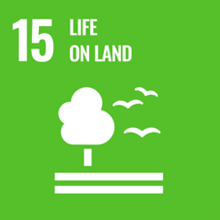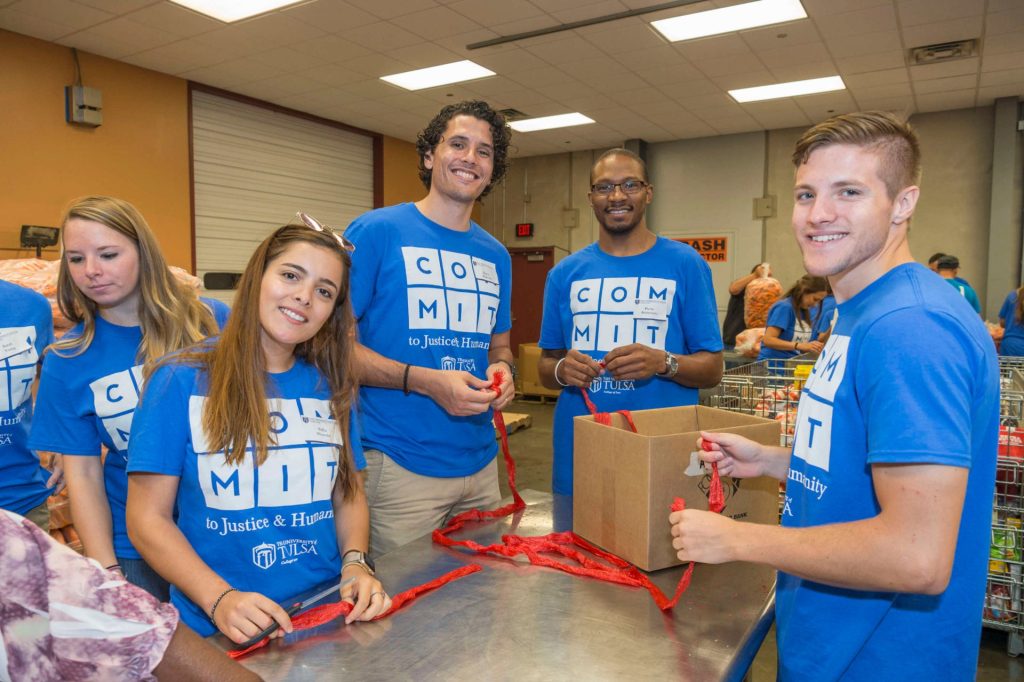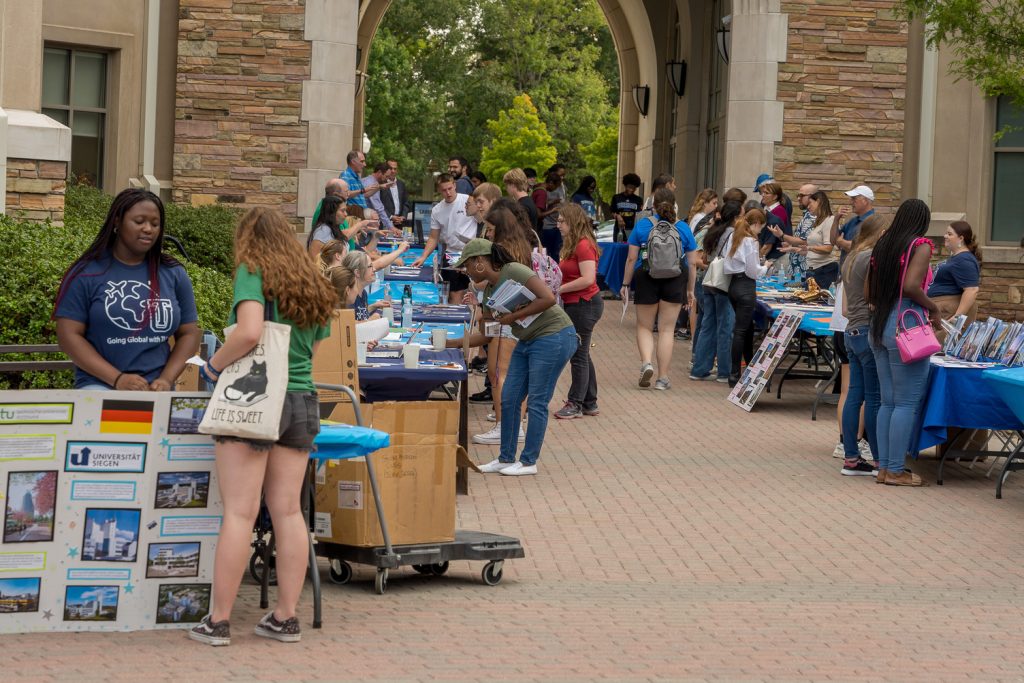
Protect, restore, and sustainably manage terrestrial ecosystems, forests, and biodiversity
This goal emphasizes the critical need to protect and restore the health and productivity of the world’s terrestrial ecosystems. Achieving this goal is essential for safeguarding biodiversity, preserving natural resources, addressing climate change, and ensuring a sustainable future for current and future generations. It recognizes the interconnectedness of land-based ecosystems with broader sustainability efforts, including clean water, climate action, and poverty reduction.
While the University of Tulsa may not have direct influence over large-scale terrestrial ecosystems, it contributes to SDG 15 in several ways:
- Research and Education: Engage in research and educational initiatives related to terrestrial ecosystems, biodiversity, and conservation. Faculty and students can study and raise awareness about local and global ecological issues.
- Environmental Courses and Programs: Offer academic programs and courses in environmental science, ecology, conservation biology, and related fields to educate students about the importance of terrestrial ecosystems and biodiversity conservation.
- Sustainable Campus Practices: Implement sustainable campus practices, including landscaping and grounds management, that prioritize the conservation of local flora and fauna. This may involve native plant landscaping, wildlife habitat preservation, and reducing pesticide and herbicide use.


- Partnerships and Outreach: Collaborate with local or global conservation organizations, parks, and nature reserves to support conservation efforts, raise awareness, and engage in outreach and education activities.
- Student Engagement: Encourage student-led initiatives, clubs, and organizations focused on environmental conservation and restoration, providing opportunities for hands-on involvement.
- Awareness Campaigns: Raise awareness among students and the campus community about the importance of terrestrial ecosystem conservation through educational programs and events.
- Sustainable Land Use: Incorporate sustainable land use planning principles in campus development, preserving green spaces and minimizing ecological disturbance.
- Community Engagement: Engage with the local community to promote conservation practices, collaborate on restoration projects, and share knowledge and best practices.
- Climate Change Education: Integrate discussions about climate change and its impact on terrestrial ecosystems into relevant courses and programs, emphasizing the interconnectedness of SDGs.
While TU’s direct impact on large terrestrial ecosystems may be limited due to its location, its contribution to SDG 15 lies in its ability to educate and raise awareness about terrestrial ecosystem conservation, foster research and innovation in related fields, and promote responsible practices among its students, faculty, and staff. By instilling a sense of responsibility for the environment and terrestrial ecosystems, TU indirectly contributes to the global effort to protect and sustain life on land as outlined in SDG 15.

Support and organize events aimed to promote conservation and sustainable use of land.
Implement policies to ensure the conservation, restoration and sustainable use of land ecosystems associated with the university.
Offer educational programs and outreach on sustainable management of land for agriculture and tourism.
Research
5+
Total Scholars
115
Total Publications
News
- Dear UTulsa community, As we begin a vibrant fall semester, I am pleased to share several pieces of good news about the department’s faculty. Associate Professor Laura Ford has been […]
- UTulsa is researching blending hydrogen into natural gas pipelines to reduce carbon emissions by replacing a portion of the methane in the gas with hydrogen, which produces no carbon dioxide […]
- At The University of Tulsa, innovation is taking a step forward with the development of an advanced solar energy conversion system that combines two cutting-edge technologies: concentrated solar power (CSP) […]
- University of Tulsa mechanical engineering alumnus Tim Latimer (BS ’12) was dealing with drilling equipment that kept breaking from the high temperatures deep underground. “I had never even heard of […]
- Growing up in New Mexico where her family operates an oil and gas business, Ileana Braddock was surrounded by people whose livelihoods were impacted by the booms and busts of […]
- On June 26, The University of Tulsa (UTulsa) welcomed six representatives from China University of Petroleum (CUP)-Beijing to its campus led by Vice President Guangqing Zhang. The visit marked a […]
- Eleven students from The University of Tulsa are participating in the Future Green Energy Leaders Summer Program hosted by China University of Petroleum, Beijing (CUPB). This is the first time […]
- The University of Tulsa’s (UTulsa) Mohan Kelkar, Ph.D., Chair of Petroleum Engineering, recently traveled to the Bahrain Centre for Strategic, International and Energy Studies to speak on energy transition. The […]
- The energy needs of individuals, communities, and the state invoke not only the demands on common resources, but also the environmental health of our communities. On March 27-28, The University […]
- University of Tulsa alumnus Matthew Crall (MS ’17, PhD ’19) is one of the scientists currently breaking new ground in CCS technology.